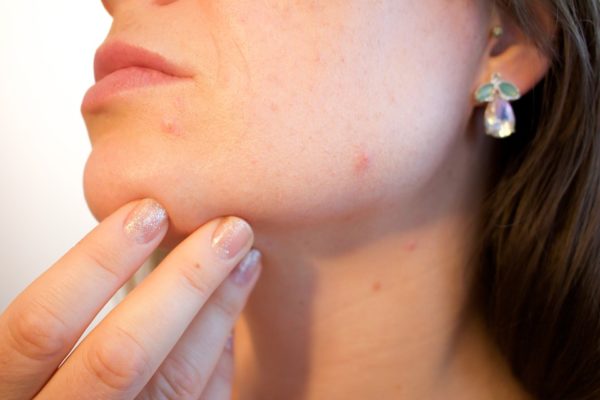Acne, from mild to severe, affects most people at some point in their lives. The prominent bumps can be painful, leave lasting scars, and make it difficult to feel confident in your own skin. Acne is most commonly caused by bacteria, which colonizes hair follicles and results in inflammation and swelling.
Image Source: PeopleImages
There are tons of over-the-counter and prescription treatments that can be used alone or together to treat acne. While these treatments are proven to be effective, some acne sufferers may be looking for a more natural solution. A quick search for “Natural Acne Treatments” brings up pages of options, ranging from essential oils and do-it-yourself face masks to light treatments and acupuncture. Unfortunately, there isn’t much evidence to support or refute most of these treatments.
However, some homeopathic remedies have been scientifically shown to be effective. Researchers in Japan were able to show that several homeopathic treatments, including the plants Pulsatilla and Lycopodium and topical treatments containing sulphur, might have some promise in treating acne and other skin conditions. It is unclear if these were used alone or in conjunction with a pharmaceutical treatment, but most patients using at least one treatment reported improvement. Another study showed reduction of inflammation with the use of the root vegetable Arctium lappa as a dietary supplement. Yet another showed similar results with Z. officinale, or ginger.
In general, the best natural treatment for acne is good self-care. This includes regularly washing your skin with a gentle cleanser, using toners like witch hazel to reduce oil, eating a variety of fruits and vegetables, exercising regularly, and getting enough water and sleep. Choosing organic products free of sulfates or alcohols may help decrease irritation and dryness. Avoiding certain foods like dairy products may help in some cases. Smoking can greatly increase the risk of acne as well. Also, acne can be a side effect of other conditions like polycystic ovary syndrome or diabetes, so treating the underlying cause may help the acne as well.
If you want to try a homeopathic remedy, it is always a good idea to ask a dermatologist or esthetician first to ensure the treatment is safe. Also, patch-test a small amount of the treatment on the inside of your wrist 24 hours before you use it to be sure your skin won’t react negatively to the treatment. Acne comes in many varieties and can have many different causes, so check with your doctor to see if natural solutions will work for you and your skin.
Featured Image Source: Kjerstin_Michaela










